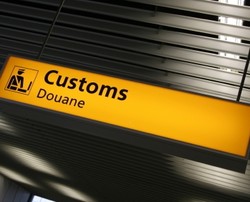New rules on IPR in Europe 'must not impact generic drug supplies'
Phil Taylor, 04-Jul-2012
 The European Parliament voted in
favour of new powers for customs officers in the EU to seize and
destroy counterfeit goods yesterday, on the proviso that these are
not used to disrupt the trade in legitimate generic medicines.
The European Parliament voted in
favour of new powers for customs officers in the EU to seize and
destroy counterfeit goods yesterday, on the proviso that these are
not used to disrupt the trade in legitimate generic medicines.
The resolution was adopted with 397 votes in favour, 259 against
and 26 abstentions, and the draft regulations will now be put
forward for discussion with the European Council.
Parliament had decided to clarify the rules surrounding customs
right to intervene in cases of intellectual property rights (IPR)
due to the "rising volume of goods bought by EU citizens online and
shipped to them by post from countries outside the EU".
"Customs officials placed on the EU's external borders are in a
comparatively good position to stop infringing goods before they
enter the internal market", said Parliament's rapporteur Jürgen
Creutzmann in the debate preceding the vote.
Customs authorities must however abide by the EU's international
commitments to ensure that generic medicines are not delayed or
confiscated, according to the
text of the resolution.
The seizures of legitimate generic medicines made in India and en
route to markets in Latin America by EU customs created
considerable controversy in recent years.
The Court of Justice of the EU (CJEU) ruled last year that
shipments coming from a non-EU country that are in customs
warehousing or in transit in the EU can only be classified as
"counterfeit" or "pirated" – and detained under the anti-piracy
legislation – if it is proven that they are intended for sale in
the EU.
Some MEPs would have liked generic medicines to have been exempted
altogether from the new rules, and so voted against the regulation
as a whole.
The changes to the current process would allow customs to destroy
larger shipments of counterfeit goods in the absence of a court
decision, provided the right-holder confirms the infringement and
the importer does not file an objection.
In the case of small consignments, the draft regulation introduces
a simplified procedure to allow small consignments of suspected
counterfeit or pirated goods to be destroyed sooner. Preliminary
figures for 2010 show a 200 per cent increase in small postal
consignments confiscated by customs.
The final proposal was watered down from earlier drafts with the
addition of clauses allowing persons buying the counterfeit goods
to object to their destruction, and to forego the costs of
destruction if they have been shown to have bought them in good
faith.
"Customs confiscations of counterfeit and pirated goods almost
doubled between 2009 and 2010, and these goods cost European
businesses about €250 billion in lost sales each year," said
Parliament in a statement.

©
SecuringIndustry.com




 The European Parliament voted in
favour of new powers for customs officers in the EU to seize and
destroy counterfeit goods yesterday, on the proviso that these are
not used to disrupt the trade in legitimate generic medicines.
The European Parliament voted in
favour of new powers for customs officers in the EU to seize and
destroy counterfeit goods yesterday, on the proviso that these are
not used to disrupt the trade in legitimate generic medicines.